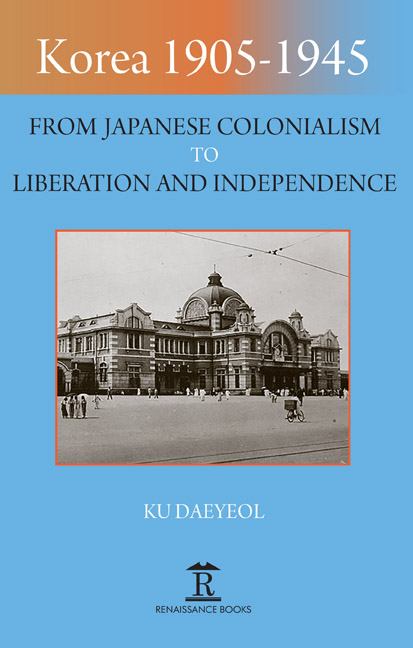Chapter 7 - Problems in Previous Studies on Liberation and Division
Published online by Cambridge University Press: 04 May 2022
Summary
BY THE 1940S, the nature of the Korean question had completely changed. East Asia's Sino-Japanese War in 1937 and Europe's second Great War in 1939, combined with the war in the Pacific between the United States and Japan, following Japan's strike on Pearl Harbor, Hawaii, in December 1942, became an overarching global conflagration. The Pacific War represented a struggle to redefine the international order in the Asian-Pacific region. On one side was an overly self-serving Japanese design to establish a “new order” in East Asia, and on the other was what ultimately became an American determination to eliminate Japan as a first-rate power. The whole world was now a campaign theater, and all the great powers joined the struggle based on their alliances. Two days after the outbreak of the war in the Pacific, Syngman Rhee rejoiced, in a letter to the State Department, that “the inevitable clash has at last come.” The Korean peninsula had never been an immediate object of this struggle. However, its international status could drastically change with the war's conclusion, especially with Japan's defeat, which would give Korea an opportunity for liberation and independence. Meanwhile, reports on the situation in Korea had become unavailable as consulates in Seoul were closed down, and foreign diplomats were evacuated. The Korean question was now a matter of interest, though a secondary one, to all the war-related agencies that would have to deliberate on the reorganization of world order for a postwar era.
Save North Korea, which continues to insist that Korea was principally liberated by Kim Ilsung (Ilsŏng) and his partisan army, few would disagree that the liberation was a byproduct of the Allied victory over Japan in World War II. Advocates of Korean independence, including Frederick McKenzie in the 1920s and Syngman Rhee in the 1930s, had hoped for a clash between the United States and Japan for a long time, as they believed that such an event would best resolve the Korean question. As far as Korean nationalists were concerned, therefore, the Pacific was a prelude to independence. Their sphere of action was accordingly widened and energized.
- Type
- Chapter
- Information
- Korea 1905-1945From Japanese Colonialism to Liberation and Independence, pp. 213 - 226Publisher: Amsterdam University PressPrint publication year: 2021



